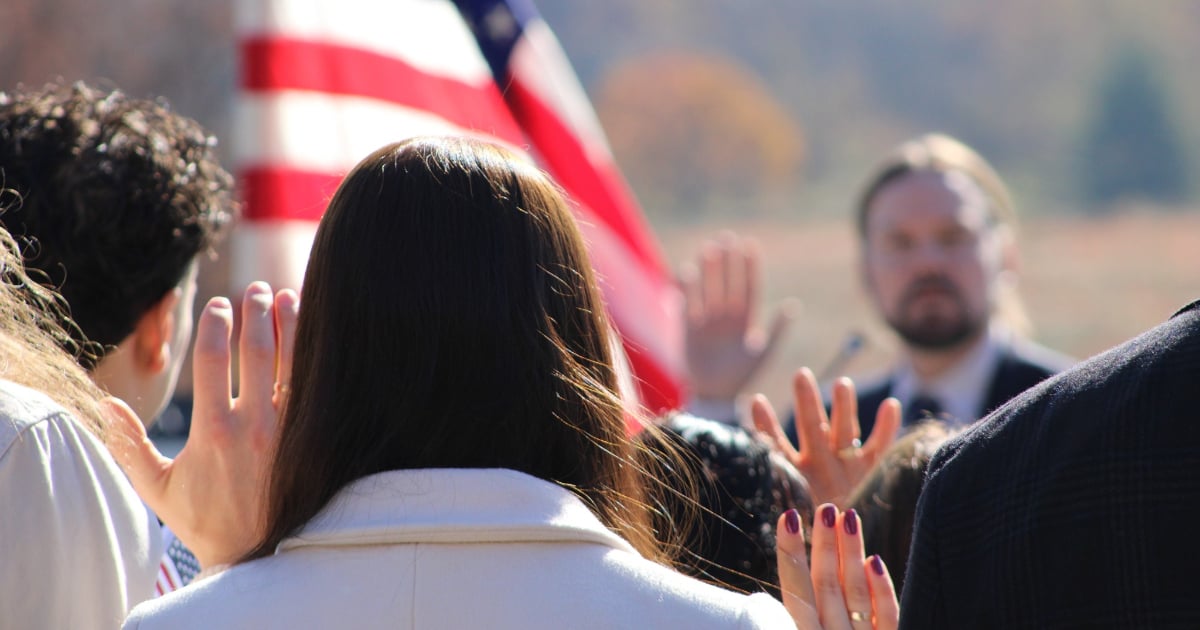The recent resumption of processing for immigration benefit applications has provided relief to many Cubans, yet the humanitarian parole program remains officially revoked in the United States. The announcement from U.S. Citizenship and Immigration Services (USCIS) on June 21st does not signify the program's return but rather a judicial response compelling the government to process pending applications that predated its cancellation.
Since President Donald Trump returned to office in January 2025, the humanitarian parole—an avenue that benefited over 530,000 individuals from Cuba, Haiti, Nicaragua, and Venezuela—has faced significant political opposition. Just hours after his inauguration, Trump signed an executive order rescinding the CHNV program, halting new admissions, and initiating a review and cancellation of previously granted benefits. This action affected work permits, travel authorizations, and residency applications derived from the program.
An official announcement in March by the Department of Homeland Security (DHS) published in the Federal Register confirmed the revocation of benefits for thousands of migrants, setting April 24th as the deadline for documents issued under parole to remain valid. This development ushered in a period of uncertainty and fear among beneficiaries, particularly Cubans, many of whom had not yet met the one-year residency requirement to qualify for the Cuban Adjustment Act.
USCIS Resumes Processing but Keeps Parole Closed
Legal pressure soon mounted. By late March, a coalition of beneficiaries and immigrant rights organizations filed a lawsuit in the federal court in Boston, demanding respect for the procedural rights of those who had legally entered the U.S. via parole. Federal Judge Indira Talwani granted a temporary injunction requiring the government to prove that cases were still being processed despite the overall cancellation.
On Saturday, USCIS informed the court that it had lifted all internal suspensions within its system and that pending applications would be evaluated and resolved according to the law. This means that Cubans already in the process of adjusting their status—whether through the Cuban Adjustment Act, work permits, or other associated pathways—are entitled to have their applications completed. However, humanitarian parole as an immigration policy remains invalidated, and new applications are not being accepted.
Rights Under Scrutiny
According to USCIS, suspended processes were reactivated across its offices as of June 13th. Errors in the phone and virtual support systems were corrected, and internal memos were sent to instruct agents to resume adjudications. Despite this, authorities have made it clear that any application showing potential signs of fraud or national security risk will be scrutinized more rigorously.
Beneficiaries should be aware that this partial reopening is a response to a temporary court order. The lawsuit remains active, and further decisions could alter the course of events once again.
What Can Cubans Expect Now?
Out of the more than 110,000 Cubans who entered the U.S. through the CHNV program, an estimated 20,000 have not yet qualified under the Cuban Adjustment Act due to not meeting the minimum one-year residency requirement. For them, this reactivation offers a chance to progress, but not a guarantee of permanence.
The DHS has warned that those unable to regularize their status might face deportation proceedings. Furthermore, the Trump administration retains the authority to issue new regulations that could further restrict access to benefits.
An Unstable Legal Path Forward
In summary, humanitarian parole is sustained only for those already within the system. The entry for new applicants remains shut, and those in the process must proceed cautiously, ideally with legal guidance. The path isn't closed, but it remains narrow and fraught with uncertainty. The legal battle continues, along with the hope of thousands of Cubans to turn their parole entry into a stable and secure immigration status.
Key Questions About the Humanitarian Parole Program
What does the recent USCIS announcement mean for Cuban migrants?
USCIS's recent announcement indicates that while the humanitarian parole program remains revoked, pending applications will be processed. This offers an opportunity for Cubans already in the system to adjust their status under existing laws.
Can new applications for humanitarian parole be submitted?
No, new applications for humanitarian parole are not being accepted as the program remains officially revoked under the current administration.
What risks do beneficiaries face if they cannot adjust their status?
Beneficiaries who cannot adjust their status may face deportation proceedings, as warned by the Department of Homeland Security.
